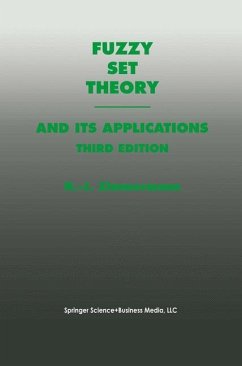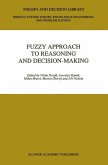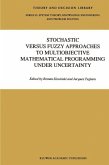In recent years, an impetuous development of new, unconventional theories, methods, techniques and technologies in computer and information sciences, systems analysis, decision-making and control, expert systems, data modelling, engineering, etc. , resulted in a considerable increase of interest in adequate mathematical description and analysis of objects, phenomena, and processes which are vague or imprecise by their very nature. Classical two-valued logic and the related notion of a set, together with its mathematical consequences, are then often inadequate or insufficient formal tools, and can even become useless for applications because of their (too) categorical character: 'true - false', 'belongs - does not belong', 'is - is not', 'black - white', '0 - 1', etc. This is why one replaces classical logic by various types of many-valued logics and, on the other hand, more general notions are introduced instead of or beside that of a set. Let us mention, for instance, fuzzy setsand derivative concepts, flou sets and twofold fuzzy sets, which have been created for different purposes as well as using distinct formal and informal motivations. A kind of numerical information concerning of 'how many' elements those objects are composed seems to be one of the simplest and more important types of information about them. To get it, one needs a suitable notion of cardinality and, moreover, a possibility to calculate with such cardinalities. Unfortunately, neither fuzzy sets nor the other nonclassical concepts have been equipped with a satisfactory (nonclassical) cardinality theory.
`The book is highly original, rigorous, and well written. It is a valuable contribution to the growing literature dealing with the many faces of uncertainty.'
International Journal of General Systems, 26:4 (1997)
International Journal of General Systems, 26:4 (1997)
`The book is highly original, rigorous, and well written. It is a valuable contribution to the growing literature dealing with the many faces of uncertainty.'
International Journal of General Systems, 26:4 (1997)
International Journal of General Systems, 26:4 (1997)








